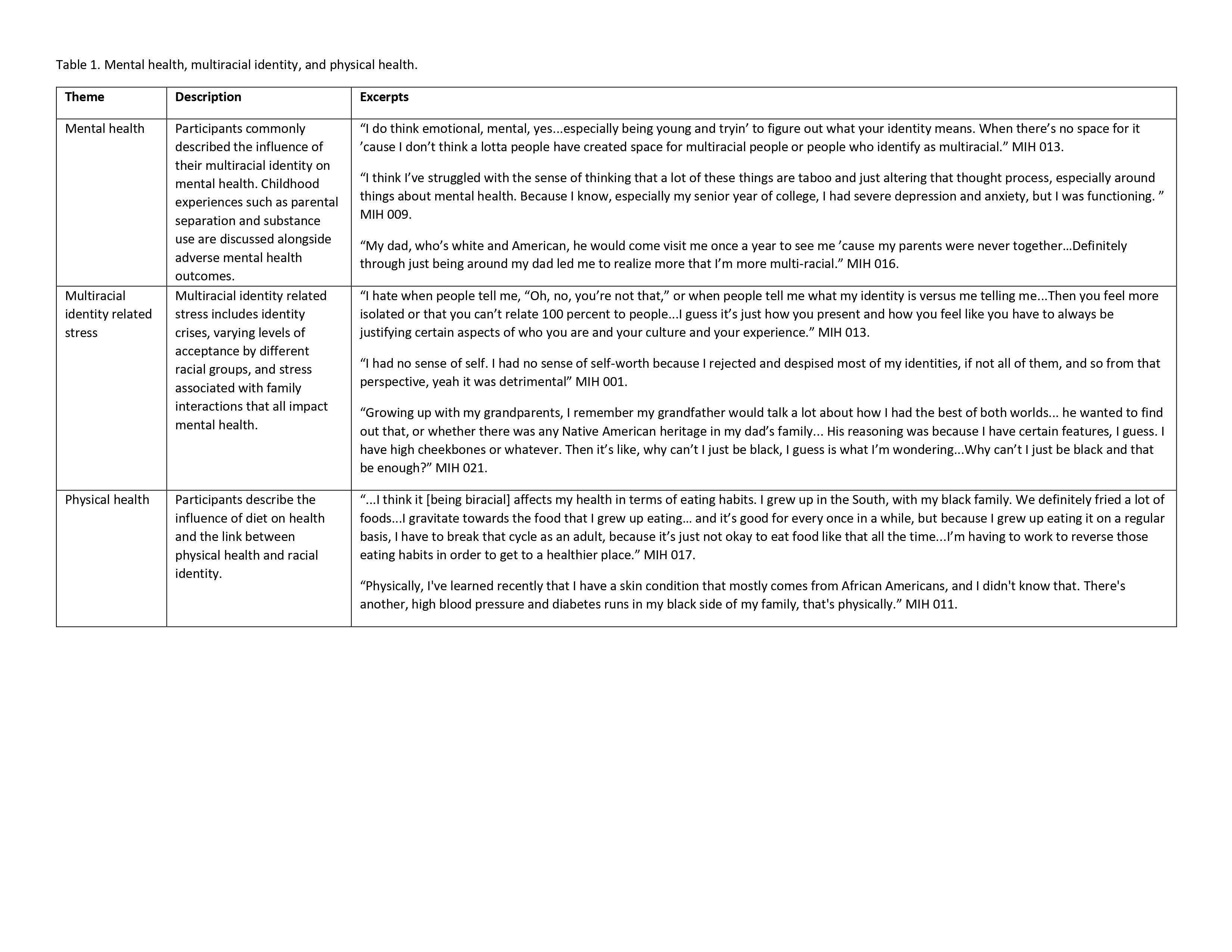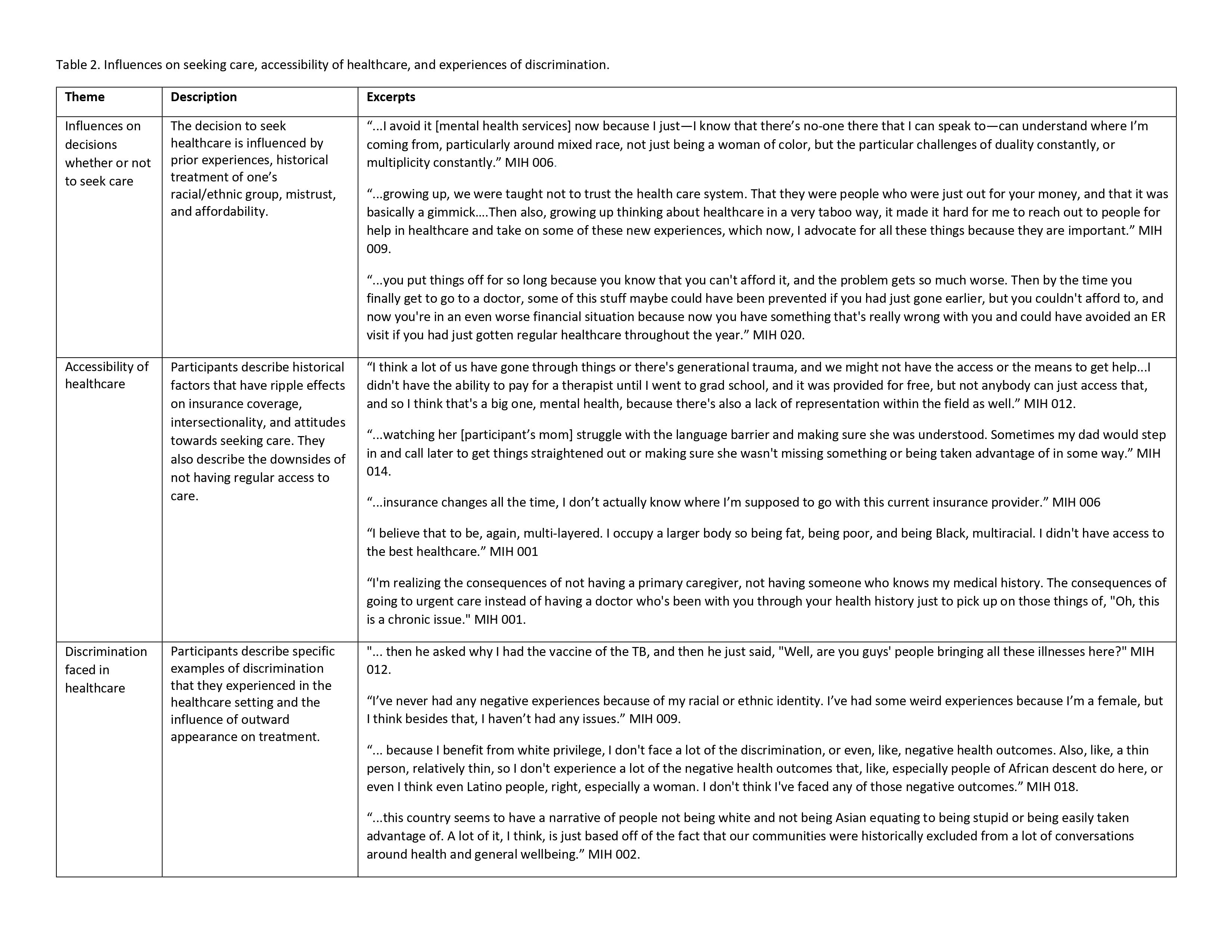Health Equity/Social Determinants of Health
Health Equity/Social Determinants of Health 5
451 - The influence of identity on multiracial adolescents and young adults’ health and experiences seeking healthcare in the United States: a qualitative study.
Publication Number: 451.219

Anjali S. Vora, MD, MPH (she/her/hers)
Academic General Pediatrics/Primary Care Research Fellow
Columbia University Vagelos College of Physicians and Surgeons
New York, New York, United States
Presenting Author(s)
Background:
Adolescents and young adults (AYA) who identify as multiracial, defined as having parents who are of two or more racial groups, are a fast-growing demographic in the United States (US), increasing from 2.9% of the population in 2010 to 10.2% in 2020 per the US Census. An overall lack of information exists about the impact that this multiracial identity may have on individual health and interactions with the US healthcare system. Existing research is mostly focused on monoracial populations and shows that health and healthcare utilization is impacted by racial disparities and discrimination, which may also be true for multiracial AYA.
Objective:
This study explores how AYA ages 18-29, who identify as multiracial, describe the impact of their identity on their health and experiences seeking health care in the United States.
Design/Methods:
Participants were recruited from across the US through multiracial specific national and regional groups via social media. Semi-structured interviews lasted approximately one hour and were conducted with 21 participants in May 2021 on HIPAA compliant Zoom. Interview guide categories were: health and wellbeing, racial and ethnic identification, childhood upbringing, family influence, peer engagement, experiences of discrimination, forming resilience, language and demographics. A thematic framework analysis was utilized.
Results:
Key overarching themes arose including: the influence of multiracial identity stress and childhood experiences on mental health (Table 1); the impact of identity on physical health (Table 1); the effects of structural, community, and interpersonal level influences on decisions whether or not to seek care, accessibility of healthcare, and discrimination faced in healthcare (Table 2).
Conclusion(s):
Our findings suggest that multiracial identity may influence mental health more than physical health in AYA. Mental health was strongly tied to multiracial identity related stress. Multiracial AYA face challenges with healthcare that are unique, such as discrimination based on perceived identification, and others that are similar to monoracial AYA. This study also illustrates how structural factors trickle down to influence decisions to seek or not seek care and accessibility via socioeconomic status, insurance, childhood experiences, and racial and cultural beliefs about healthcare. Increased awareness and identification of multiracial individuals, and diversity in the workforce may help the US healthcare system better serve multiracial AYA. 

